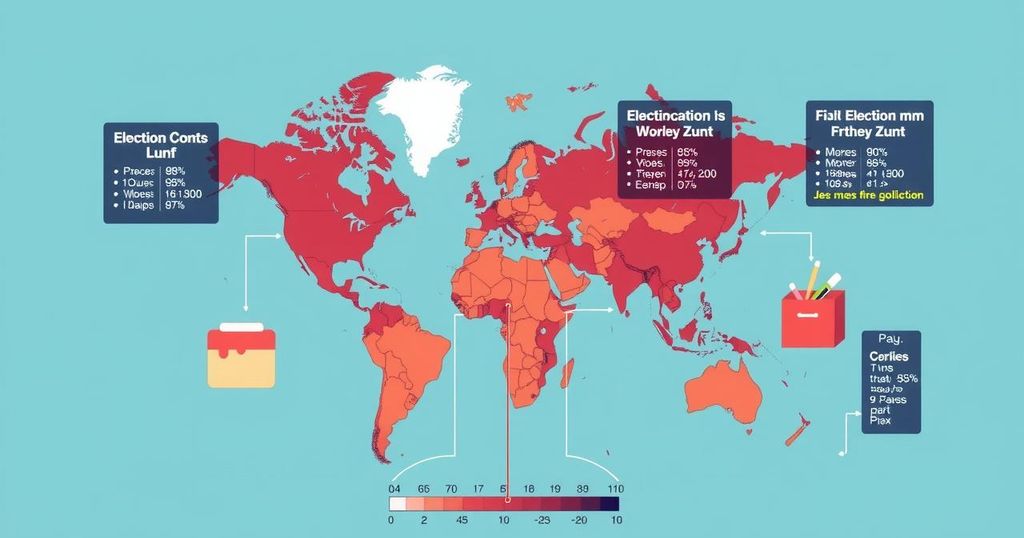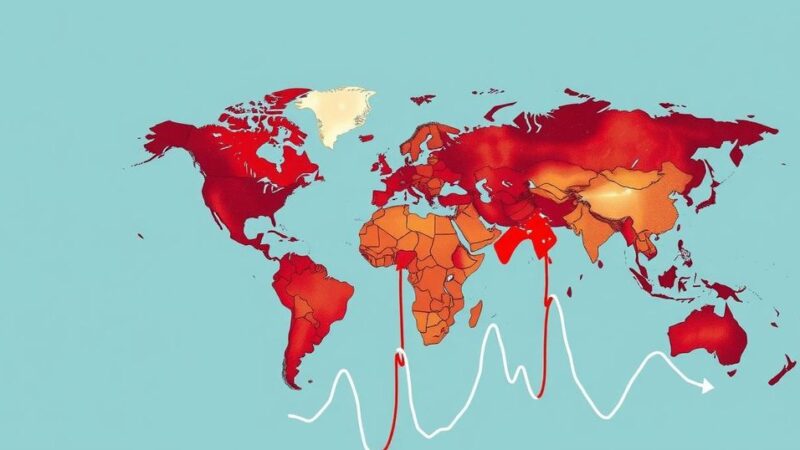The year 2024 witnessed significant electoral shifts globally, with widespread voter dissatisfaction leading to the defeat of incumbent governments in numerous countries. This trend was fueled by ongoing economic hardship, social unrest, and a burgeoning support for populist and far-right parties. The political landscape remains fraught with challenges, as issues such as foreign election interference and calls for improved governance persist as major concerns heading into 2025.
In 2024, voters in approximately 70 countries, encompassing half of the global population, expressed discontent with their governments, leading to significant changes across the political landscape. Economic troubles, partly due to the lasting effects of the pandemic and ongoing global conflicts, have triggered an anti-incumbent sentiment, resulting in the loss of support for long-standing leadership in countries such as South Africa and India. Many voters have embraced new political actors instead, marking a significant shift in democracies worldwide.
From Europe to Asia, the year was characterized by a palpable wave of dissatisfaction. For instance, in India, Prime Minister Narendra Modi’s government lost its parliamentary majority, prompting a coalition government. Meanwhile, historical political parties in several African nations faced similar fates, including the African National Congress in South Africa, which was compelled to share power after a surprising electoral defeat.
The rise of populist and right-wing parties has further complicated this narrative, correlating with the displacement of traditional political structures. In European countries such as Austria and France, elections showcased significant gains for conservative and far-right movements, reflecting a growing trend in shifting electoral landscapes. Additionally, concerns surrounding foreign interference, specifically from countries such as Russia and Iran, have emerged, raising questions about the integrity of elections in numerous nations.
The tumultuous nature of 2024 also highlighted the complications related to governance amidst crises, as exemplified by political upheavals in South Korea and Venezuela. Moreover, high-profile electoral outcomes, such as Donald Trump’s return to the presidency in the United States, are anticipated to exacerbate existing tensions and uncertainties surrounding global alliances.
As 2025 approaches, enduring challenges to democratic norms seem imminent, with forthcoming elections likely to reveal ongoing divisions within governments and citizens alike. The situation underscores a critical need for reflection within democratic practices as communities increasingly demand accountability and responsiveness from their leaders.
The year 2024 proved to be a pivotal moment in global politics as widespread elections revealed substantial voter discontent across numerous countries. The collective sentiment was influenced by economic instability, social unrest, and disillusionment with traditional political entities, prompting citizens to express a desire for change. This environment fostered increased support for right-wing and populist parties, complicating established democratic frameworks and resulting in significant electoral outcomes that may shape the future of governance worldwide.
In summary, the electoral events of 2024 encapsulated a growing trend of voter dissatisfaction that led to the diminishment of incumbent powers in multiple countries. This year has been marked by significant victories for opposition parties, increased influence of far-right movements, and pervasive allegations of foreign interference in elections. These dynamics reveal urgent challenges to democracy that persist as nations prepare for further elections in 2025, suggesting a pronounced demand for reform and accountability from elected officials.
Original Source: dailyjournal.net







